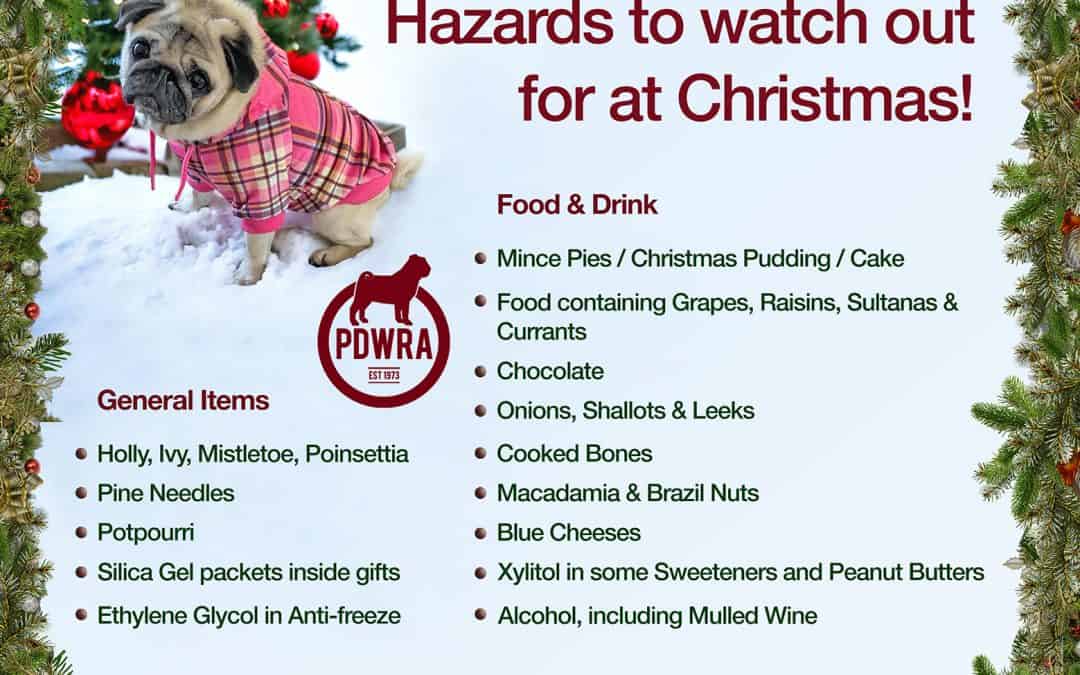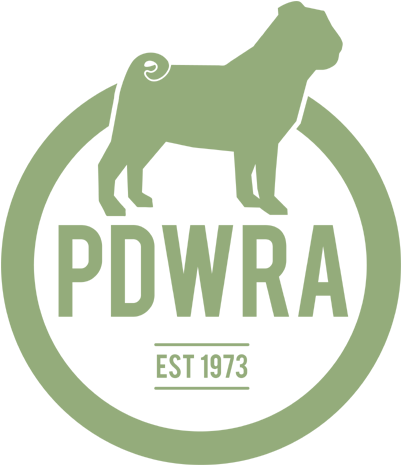It’s that time of year again where there are plenty of temptations which are potentially hazardous to our furry friends, particularly celebratory foods and treats that are being brought into the home.
As well as the festive greenery that may make your dog very ill, tempting foods which we may think are a treat for them can actually cause a great deal of harm, including hidden ingredients such as seasoning & spices.
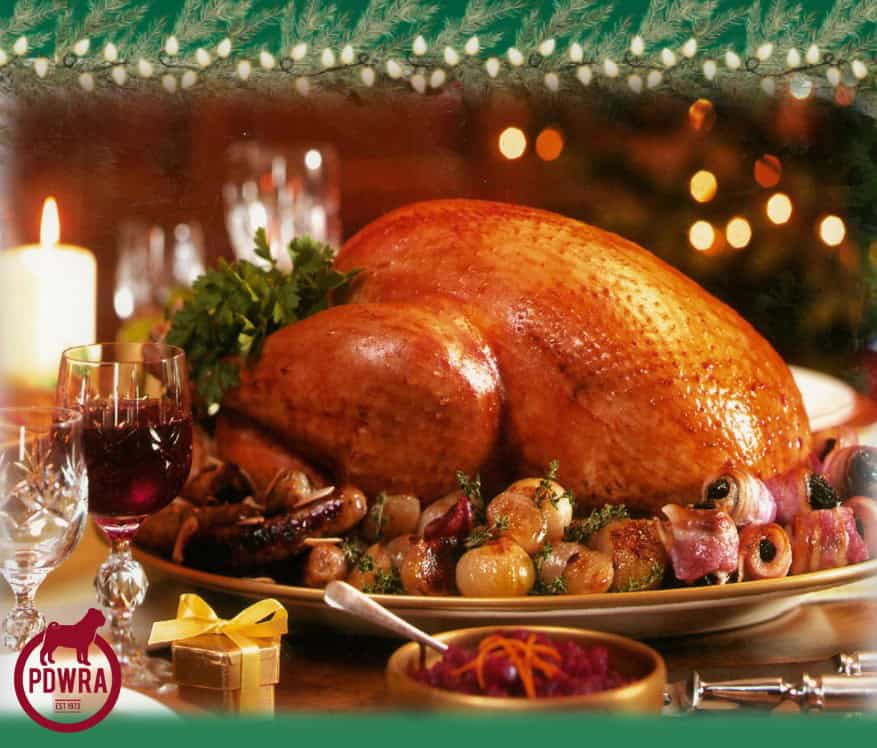
Vets will treat 75% more cases of dogs eating foods that are poisonous to them in December, so it’s important to be aware of what to avoid and ensure others including visitors know about them too:
FOOD
– Christmas cake, mince pies and Christmas pudding.
– Foods containing grapes, raisins, sultanas & currants.
– Chocolate, boxes lying around, tempting foil coins on the tree.
– Traditional turkey, goose & chicken where cooked bones can easily splinter.
– Sage and onion stuffing, gravy, anything with onion, chives, garlic, celery.
– Do check for hidden seasoning ingredients in sausages, a particular Christmas treat from a roast dinner.
– Other foods, such as certain nuts, blue cheese, fatty and salty processed foods.
– Xylitol sometimes marketed as birch sugar, used in artificial sweeteners and sweeteners of products such as peanut butter, is toxic to dogs.
– All alcohol.
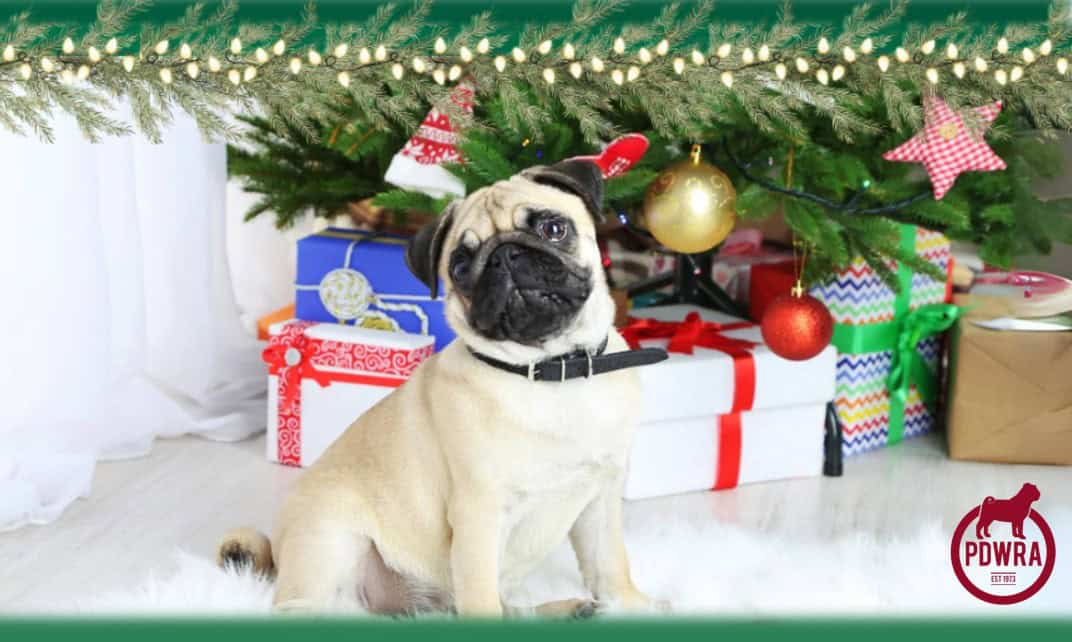
OTHER
– Particular festive greenery and plants may make your dog very For a comprehensive list that are dangerous to dogs, see this: poisons in your garden article.
– Oils from pine needles may be irritating to the mouth and stomach, causing excessive dribbling, vomiting and diarrhoea if chewed. Needles are also sharp so could cause physical injury in your dog’s mouth and throat.
– Potpourri is made up of various dried plants and flowers to create fragrant decorations. Depending on their toxicity they may cause, at the very least, vomiting and diarrhoea.
– Take care when using antifreeze (ethylene glycol). It tastes sweet so is tempting for dogs but can be lethal if ingested.
– Watch for dogs drinking out of puddles too as they may be tainted with antifreeze chemicals.
– Some snow globes contain anti-freeze and if broken, are a serious danger to your dogs.
– Salted roads & paths can also burn their paw pads.
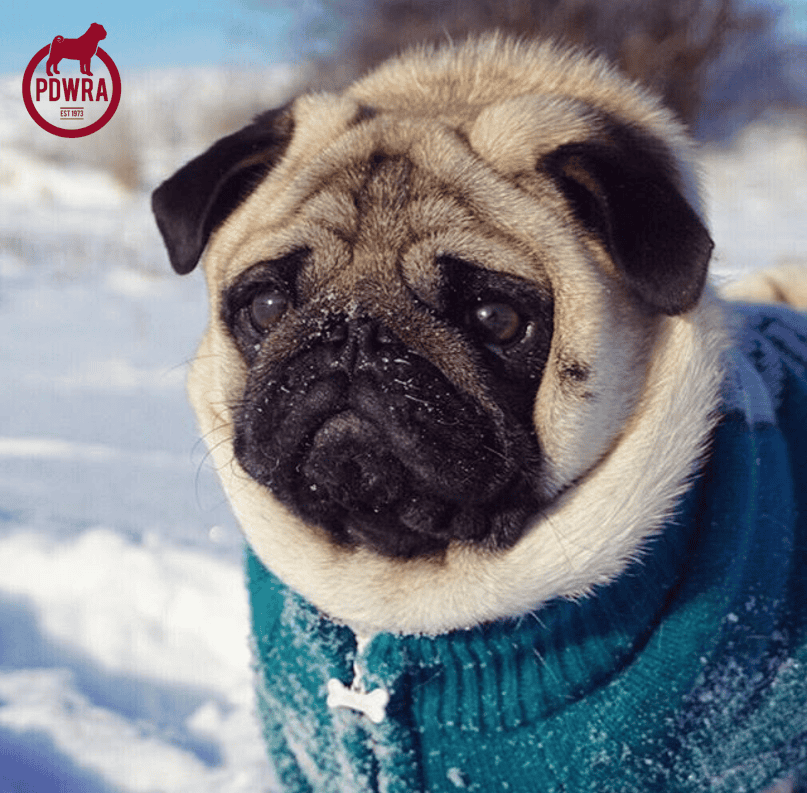
Frostbite:
Ice and snow can build up in the fur between their pads which is not only uncomfortable but increases the risk of frostbite. If your dog raises its paws, stops walking or whines it could be a sign that their paws are too cold.
When cold, a dog’s body limits blood flow to their extremities (paws, tail, ears etc.) diverting to keep their vital organs protected. This puts their extremities at risk of being damaged by the cold. If you’re concerned about them having frostbite contact your vet immediately.
So, on very cold, icy or snowy days, try to keep the time they spend outside to a minimum, and consider using a coat or paw protectors to keep them warm.
If you do buy a coat make sure it fits well so that it doesn’t restrict their normal movement, either through being too tight or too loose. If you’re outside in the cold and your pet starts shivering, or appears very tired, then get them home as soon as possible. If they are very unwell, get worse or continue to be unwell, contact your vet immediately.
However, some smaller or short coated dogs feel cold in the winter nip, so it may be a good idea to buy a well-fitting coat that will help keep them warm and dry on walks.
The dark mornings and evenings mean that you’ll most likely be taking your dog out for a walk when it is dark or gloomy, and you should think about how visible your dog is to other people when out walking in low light. Reflective collars and jackets are a good idea, and there are even some bright LED collars and tags available to help make your dog easier to see by other walkers and road users.
Christmas can be stressful for pets. The change in routine, visitors, children, loud music and decorations can all confuse or over-excite them. Planning ahead can help minimise stress for pets and ensure they have a happy Christmas, too.
A few things to consider include:
- Sticking to their routine as much as possible – their meals, exercise, bed and toilet break routines. Consistency helps them feel more secure plus they expect it!.
- Introduce new people carefully, at your dog’s own pace.
- Give them somewhere cosy and quiet to retreat to, away from all the excitement, leaving toys or familiar items to help keep them comforted.
- Don’t leave them alone too long – it’s easy to become distracted at such a busy time.
Likewise, if you’re spending Christmas away with your dog/s take something that smells familiar, like their bed, or favourite toys and chews to help keep them entertained and feel secure. Also, plan for them if they’re not going with you.
- Keep the number of an emergency vet on hand in case of accidents or if your pet eats something they shouldn’t.
- If your pet is on medication, stock up before the holidays so you don’t get caught out.
Most of all, have a very safe, comfortable and very Happy Christmas for All the family!
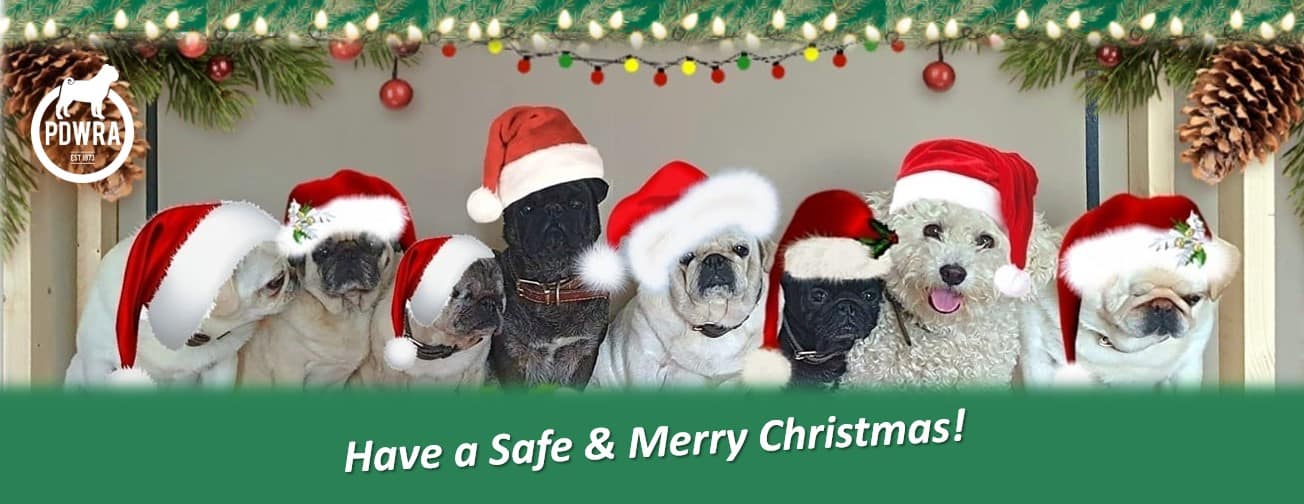
For a lot more information about pug health, please see:
Seasonal Hazards for Pugs | The Pug Dog Welfare & Rescue Association (pugwelfare-rescue.org.uk)
&
Pug Health & Wellbeing | The Pug Dog Welfare & Rescue Association (pugwelfare-rescue.org.uk)

